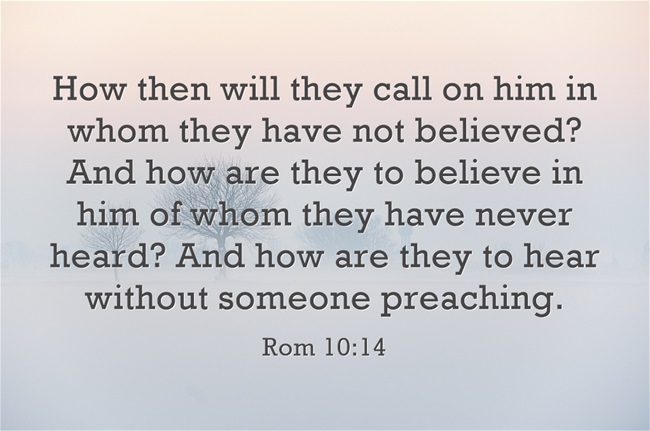Is your church a healthy church? Here are some indicators of a healthy church.
Humility
If you really want to diagnose the health of the church, humility is the pulse of the body. God is opposed to any one and any church that has pride and He will extend His grace only to the humble (James 4:6). The Apostle Peter wrote to “you who are younger, be subject to the elders. Clothe yourselves, all of you, with humility toward one another, for “God opposes the proud but gives grace to the humble” (1st Pet 5:5). To be clothed in humility is to be seen as obviously having humility and when people see you, they see the humility from every different angle. The Apostle Paul asked the pride-filled Corinthian church, who often boasted about their spiritual gifts, “What do you have that you did not receive? If then you received it, why do you boast as if you did not receive it” (1st Cor 4:7)? These gifts were from God, so how can any of them brag about them? That is a prideful thing to do and God will not work with a body of believers that are so full of themselves that God can’t possibly fill them.
Covering Offenses
One of the most vital of signs of a healthy church is that the members cover the offenses of overs. Or they overlook their faults because they see that their own faults make then no better than anyone else. Paul tells us that we should “Do nothing from selfish ambition or conceit, but in humility count others more significant than yourselves” (Phil 2:3) but also “Love one another with brotherly affection. Outdo one another in showing honor” (Rom 12:10). Peter saw love and overlooking the many sins of others as being one and the same. He believed that we should love one another and that love should cause us to overlook other’s sins. Peter wrote, just “keep loving one another earnestly, since love covers a multitude of sins” (1st Pet 4:8). This “covering” includes not gossiping about others and not using prayer requests for gossip material. This can bring down a church quicker than anything. Solomon writes, “Whoever covers an offense seeks love, but he who repeats a matter separates close friends” (Prov 17:9). To repeat a matter means to repeat it to others. Gossip is a sign of a sick church.
Rescue the Perishing
What a bad sign it is when a church never engages the community. If they had the cure for an up-to-then incurable disease and didn’t share that with the sick, then that’s almost like negligent homicide, however we’ve got the best of news that extends beyond this life and no one, not even death, can stop it (Rom 8:38-39). We have the double-quick cure to sin and it’s called the blood of the Lamb of God. When anyone repents of their sins and turns to Christ to place their trust in Him, they are saved. How can we not share the good news with those who are perishing apart from Christ? Think what the Day of Judgment will be like for them (Rev 20:12-15)! Have compassion and get the pew potatoes out of the pews and get the church out into the street to utilized the gospel’s power, which has the very power of God behind it (1st Cor 1:18). If people are not coming to church, the church must be coming to the people. It is called the “Great Commission” (Matt 28:19-20), not the “great omission.”
Bible-Centered Preaching
There are so many ways to prepare a sermon. You can simply copy and paste everyone else’s stuff or you can go to dozens of websites that have downloadable sermon notes…or you can study the Word of God and use expository Bible preaching, which brings verse by verse Scriptures, taught within the context of the paragraph, the chapter, and perhaps even in the context of the whole book. The power is in the gospel; in the Word of God itself, so why not just use it (Rom 1:16). That’s just what the first century church did as it was written that they “they devoted themselves to the apostles’ teaching and the fellowship, to the breaking of bread and the prayers” (Acts 2:42), and of course, the “apostles’ doctrine” were the teachings that Jesus taught them. Today, the “apostles’ doctrine” is contained within the New Testament and so the preaching must be Bible-centered, Christ focused. Paul directly ties in evangelism with hearing and reading the Word of God in Romans 10:14 where he writes, “How then will they call on him in whom they have not believed? And how are they to believe in him of whom they have never heard? And how are they to hear without someone preaching.”
Conclusion
We in the church must be ever diligent to watch for those who “are false apostles, deceitful workmen, disguising themselves as apostles of Christ. And no wonder, for even Satan disguises himself as an angel of light’ (2nd Cor 11:13-14) and “it is no surprise if his servants, also, disguise themselves as servants of righteousness. Their end will correspond to their deeds” (2nd Cor 11:15). Jesus says that God seeks those who will worship Him in spirit and in truth (John 4:24). Worshiping God without truth is useless before God. He will not accept such worship. We must
Article by Jack Wellman
Jack Wellman is Pastor of the Mulvane Brethren Church in Mulvane Kansas. Jack is also the Senior Writer at What Christians Want To Know whose mission is to equip, encourage, and energize Christians and to address questions about the believer’s daily walk with God and the Bible. You can follow Jack on Google Plus or check out his book Teaching Children the Gospel available on Amazon.
















